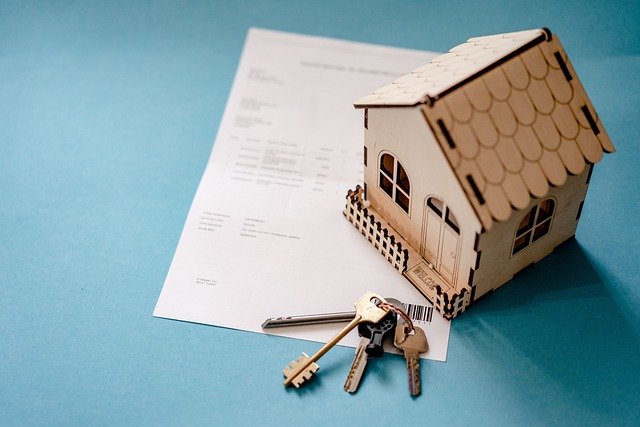Exploring the World of Used Mobile Homes: A Comprehensive Guide
Mobile homes, often referred to as manufactured homes, have long been a popular housing option due to their affordability and flexibility. As the demand for cost-effective living solutions increases, used mobile homes are becoming an attractive choice for many. This article delves into the intricacies of purchasing used mobile homes, highlighting their advantages, potential drawbacks, and market trends.

The second-hand mobile home market continues to grow as more people discover the advantages of this affordable housing option. Whether you’re looking to purchase your first home, downsize, or invest in rental property, pre-owned mobile homes present opportunities worth exploring. With proper research and understanding of the market, buyers can find quality homes that meet their needs while staying within budget constraints. This guide examines key aspects of the used mobile home market, from evaluation criteria to financing options.
Understanding Second-hand Mobile Home Value Factors
Used mobile homes vary significantly in value based on several important factors. Age represents one of the most critical considerations, with newer models typically commanding higher prices due to improved construction standards and fewer maintenance concerns. Location plays an equally important role, as homes in desirable communities with amenities like swimming pools, clubhouses, and security features generally maintain better value. The overall condition, including structural integrity, plumbing, electrical systems, and cosmetic features, directly impacts both price and potential future costs.
Size and layout also influence value, with double-wide and triple-wide models offering more space than single-wide varieties. Additionally, ownership structure affects pricing—mobile homes sold with land ownership rights typically cost more than those requiring lot rent in a mobile home park. Finally, manufacturer reputation matters, as certain brands are known for superior construction quality and longevity, which can significantly impact resale value.
Essential Steps for Second-hand Mobile Home Purchases
The process of purchasing a used mobile home requires careful planning and due diligence. Begin by establishing a realistic budget that accounts not only for the purchase price but also for potential renovation costs, transportation expenses if the home needs relocation, and ongoing maintenance. Research financing options early, as loans for mobile homes differ from traditional mortgages and may have stricter requirements or higher interest rates depending on the home’s age and condition.
Professional inspection represents a critical step before finalizing any purchase. Hire a specialized mobile home inspector who can identify structural issues, water damage, roof problems, and electrical or plumbing concerns that might not be immediately visible. Request documentation including the home’s title, maintenance records, and information about previous renovations or repairs. Finally, understand the legal requirements in your area, including zoning regulations, park rules if applicable, and proper title transfer procedures to ensure a smooth transaction.
Navigating Mobile Home Rentals and Lease Options
Renting a mobile home offers flexibility and lower upfront costs compared to purchasing. Monthly rental rates typically include the home itself and sometimes the lot fee, though arrangements vary widely. When exploring rental options, carefully review lease terms regarding maintenance responsibilities, as these often differ from traditional apartment rentals. Some landlords place maintenance burdens primarily on tenants, while others handle major systems and structural issues.
Lease-to-own arrangements have become increasingly popular in the mobile home market. These agreements allow renters to apply a portion of monthly payments toward eventual ownership, creating a pathway to homeownership without requiring substantial down payments. However, these contracts require careful scrutiny, as terms vary significantly between providers. Pay particular attention to purchase price determination, maintenance responsibilities during the lease period, and conditions that might void the purchase option.
Renovation Considerations for Second-hand Mobile Homes
Many buyers see potential in older mobile homes that can be renovated to modern standards. Common renovation projects include updating kitchens and bathrooms, replacing flooring, improving insulation, and modernizing heating and cooling systems. Before embarking on renovations, understand that mobile homes have different construction standards than site-built homes, often requiring specialized knowledge and sometimes specific materials designed for manufactured housing.
Budget planning proves essential for renovation success, as costs can quickly escalate without proper planning. Prioritize structural and system improvements over purely cosmetic changes, as these affect both safety and long-term value. Consider energy efficiency upgrades like improved windows, enhanced insulation, and modern appliances, which can significantly reduce ongoing utility costs while improving comfort. For major renovations, verify whether permits are required in your location, as regulations vary regarding modifications to manufactured homes.
Financing Options for Used Mobile Home Buyers
Financing a second-hand mobile home presents different challenges compared to traditional home purchases. Conventional mortgage lenders often have strict requirements regarding the age and condition of mobile homes, with many refusing to finance older models. Chattel loans, which treat the mobile home as personal property rather than real estate, represent a common financing option, particularly for homes not permanently affixed to land. These loans typically feature higher interest rates and shorter terms than conventional mortgages.
Some buyers qualify for FHA loans through the Title I or Title II programs, depending on whether the home is classified as personal property or real estate. Personal loans provide another option for those with strong credit, especially for lower-priced homes. For veterans, VA loans may cover manufactured homes meeting certain requirements. Some mobile home communities and dealers offer in-house financing options, though these warrant careful review of terms and interest rates.
| Financing Type | Typical Interest Rate | Loan Term | Requirements |
|---|---|---|---|
| Chattel Loans | 7-12% | 15-20 years | Home as collateral, credit score 575+ |
| FHA Title I | 7-10% | Up to 20 years | 3.5% down payment, credit score 580+ |
| Personal Loans | 8-36% | 1-7 years | Strong credit history, income verification |
| Dealer Financing | 10-20% | 5-15 years | Varies by dealer, often more flexible |
| Credit Union Loans | 6-10% | Up to 15 years | Credit union membership, stable income |
Prices, rates, or cost estimates mentioned in this article are based on the latest available information but may change over time. Independent research is advised before making financial decisions.
Community Considerations and Park Living
Many second-hand mobile homes are situated within established mobile home communities, each with its own culture, amenities, and rules. When evaluating communities, consider both the monthly lot rent and included amenities such as water, sewer, trash collection, and access to facilities like pools or community centers. Review the community rules and restrictions carefully, as these may limit everything from pet ownership to exterior modifications and even visitor policies.
Community stability represents another important factor. Research the history of lot rent increases, management reputation, and overall community maintenance. Some parks cater specifically to seniors and maintain age restrictions, while others welcome families with children and provide corresponding amenities. Additionally, investigate whether the community allows home rentals if you’re purchasing as an investment, as some restrict or limit rental activity to maintain a community of owner-occupants.
The world of used mobile homes offers affordable housing solutions with unique advantages and considerations. By understanding the market, conducting thorough research, and planning carefully, buyers can make informed decisions that align with their housing needs and financial goals. Whether purchasing for personal use or as an investment property, the second-hand mobile home market continues to provide viable alternatives in today’s challenging housing landscape.




